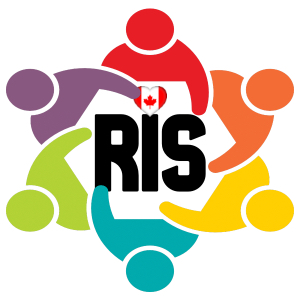STUDY IN CANADA
Canada is home to one of the best school systems in the world.
From elementary school to universities and colleges, language schools to vocational programs, Canadian schools accommodate students of all interests and backgrounds. Individuals who study in Canada receive quality, internationally-respected educations that prepare them for future professional pursuits. This is combined with tuition fees and living costs that are generally lower than in other developed countries. The number of international students in Canada is over 300,000, a figure that is constantly growing. If you have gained admission to a Canadian educational institution, you may be able to obtain a study permit to study in Canada. Not only that, but education is also a popular pathway to Canadian permanent residence. Read on to learn more.
Education as a pathway to Canadian permanent residence
A Canadian post-secondary education is not only valuable from an educational and career point of view — it is also a popular route to Canadian permanent residence.
While studying in Canada, international students in Canada may also:
- work for up to 20 hours per week while in school, and on a full-time basis during school breaks;
- obtain a Post-Graduation Work Permit for the equivalent duration of the studies once the program is successfully completed, allowing students to remain in Canada for many years before becoming a permanent resident;
- bring an accompanying spouse or common-law partner to Canada on an open full-time work permit, allowing him or her to work for any employer;
- bring accompanying minor children to study in Canada at the same rate that Canadians pay; and
- as mentioned above, become eligible for Canadian permanent residence, either through a Provincial Nominee Program (PNP), through Quebec’s immigration system, or through the Express Entry immigration selection system.
Get a study permit faster through the Student Direct Stream
Some international students can get their study permits faster by using the Student Direct Stream.
To be eligible for faster processing through the Student Direct Stream, you must:
- Be a legal resident living in:
- have an acceptance letter from a post-secondary designated learning institution
- prove that you’ve paid the tuition fees for your first year of study
- live outside of Canada when you apply
- have a Guaranteed Investment Certificate (GIC) of C$10,000
- have a Certificatd’acceptation du Québec from the Ministère de l’Immigration, de la Diversité et de l’Inclusion, if you’re planning to study in Quebec
- get a medical exam before you apply (if you need one)
- get a police certificate before you apply (if you need one)
- have a language test result that shows:
- a score of 6.0 or higher in each skill (reading, writing, speaking and listening) on the International English Language Testing System (IELTS), or
- a Test d’évaluation de français (TEF) score that is equal to a Canadian Language Benchmark (CLB) score of at least 7 in each skill (reading, writing, speaking and listening)
You may also need to provide other documents. Make sure you include all the documents required by the visa office that processes your application.
Banks that offer GICs
You can get a GIC from a bank listed on the Canadian Deposit Insurance Company website. Make sure the bank you choose offers a GIC and meets the criteria for the Student Direct Stream.
The following banks offer GICs that meet the criteria:
- Bank of Beijing
- Bank of China
- Bank of Montreal
- Bank of Xian Co. Ltd.
- Canadian Imperial Bank of Commerce (CIBC)
- HSBC Bank of Canada
- ICICI Bank
- Industrial and Commercial Bank of China
- RBC Royal Bank
- SBI Canada Bank
- Scotiabank
Medical exams and police certificates
Depending on where you’re applying from, you may need to get a medical exam or police certificate. To get faster processing through the Student Direct Stream, you must include these with your application (if you need them). If you don’t, we won’t process your application faster.
You may need to get a medical exam if:
- you lived or traveled in certain countries or territories for 6 or more months in the year before you come to Canada, or
- you plan on studying or working in:
- the health field
- primary or secondary education, or
- child or elder care
